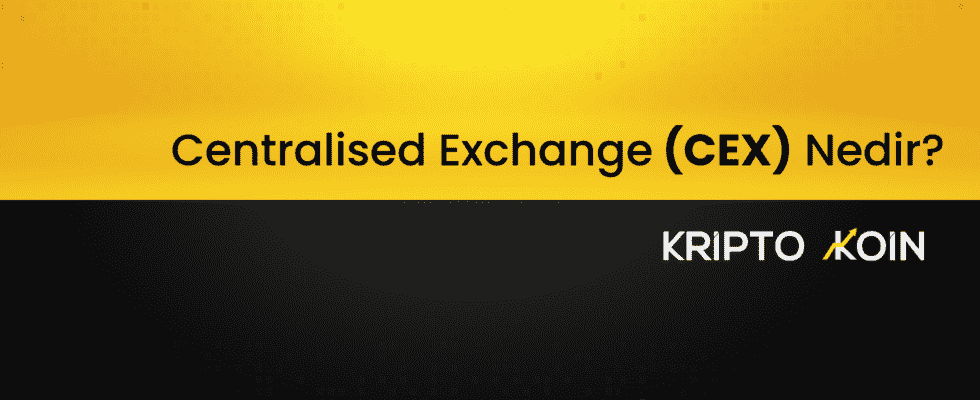Centralized Exchange (CEX) is a P2P exchange where crypto assets are traded directly between buyers and sellers. In this article, as Kriptokoin.com, “What is a Centralized Exchange (CEX)?” We will answer the question. In addition, we will touch on other questions about the project.
What is Centralized Exchange (CEX)?
Centralized Exchange (CEX) is at its core a platform where parties can securely exchange digital assets. These exchanges provide an environment where buyers and sellers can transact quickly. They also act as liquidity providers for the tokens they support, taking on the role of market makers. All transactions on these exchanges are completed electronically. It is recorded on the corresponding blockchain that powers the specific digital assets exchanged. These exchanges require all crypto assets to be reviewed before they are listed. It therefore effectively decides which tokens can be traded. They also provide access to transaction-related data for investors and other parties to analyze, along with other CEX services. CEX crypto exchanges used the blockchain, eliminating the need for a middleman. This is because all transactions are handled directly within the exchange via its own interface.
How does Centralized Exchange (CEX) work?
Centralized exchanges supporting digital assets receive orders from individual or institutional clients. It usually matches buy and sell orders with the same price. On the other hand, they can also act as market makers by providing liquidity with tokens supported by their platform to improve execution speeds. As these exchanges manage all the data on the orders placed, they may also make this information available to market participants for analysis. Usually, the exchange charges a fee to grant access to this data. Additionally, it allows developers to list project tokens subject to assets that have undergone a review process. Crypto CEXs provide a layer of decentralization. Because users do not need to go to a broker to place an order. Instead, their assets are kept in a wallet. They are free to move these assets to the exchange at any point in time they wish to trade.
A very important feature of centralized exchanges is regulation. Because these institutions deal with billions of dollars and serve millions of customers from different corners of the world, they often need to be authorized to offer their services by the local governments of the countries in which they operate.
These exchanges also have to comply with multiple laws and regulations, including KYV, AML and CFT protocols. They are also obligated to ensure that all transactions are carried out transparently and quickly, by following certain procedures that prevent market participants from distorting asset prices.
Contact us to be instantly informed about the last minute developments. twitter‘in, Facebookin and InstagramFollow and Telegram and YouTube join our channel!
Disclaimer: The articles and articles on Kriptokoin.com do not constitute investment advice. Cryptokoin.com does not recommend buying or selling any cryptocurrencies or digital assets, nor is Kriptokoin.com an investment advisor. For this reason, Kriptokoin.com and the authors of the articles on the site cannot be held responsible for your investment decisions. Readers should do their own research before taking any action regarding the company, asset or service in this article.
Warning: Citing the news content of Kriptokoin.com and quoting by giving a link is subject to the permission of Kriptokoin.com. No content on the site can be copied, reproduced or published on any platform without permission. Legal action will be taken against those who use the code, design, text, graphics and all other content of Kriptokoin.com in violation of intellectual property law and relevant legislation.
